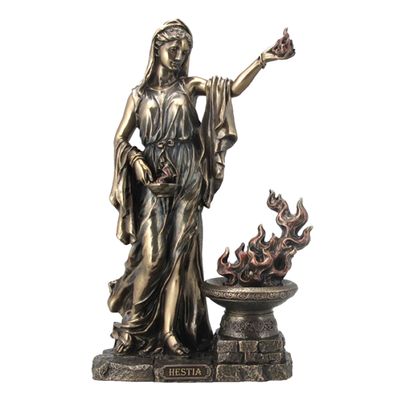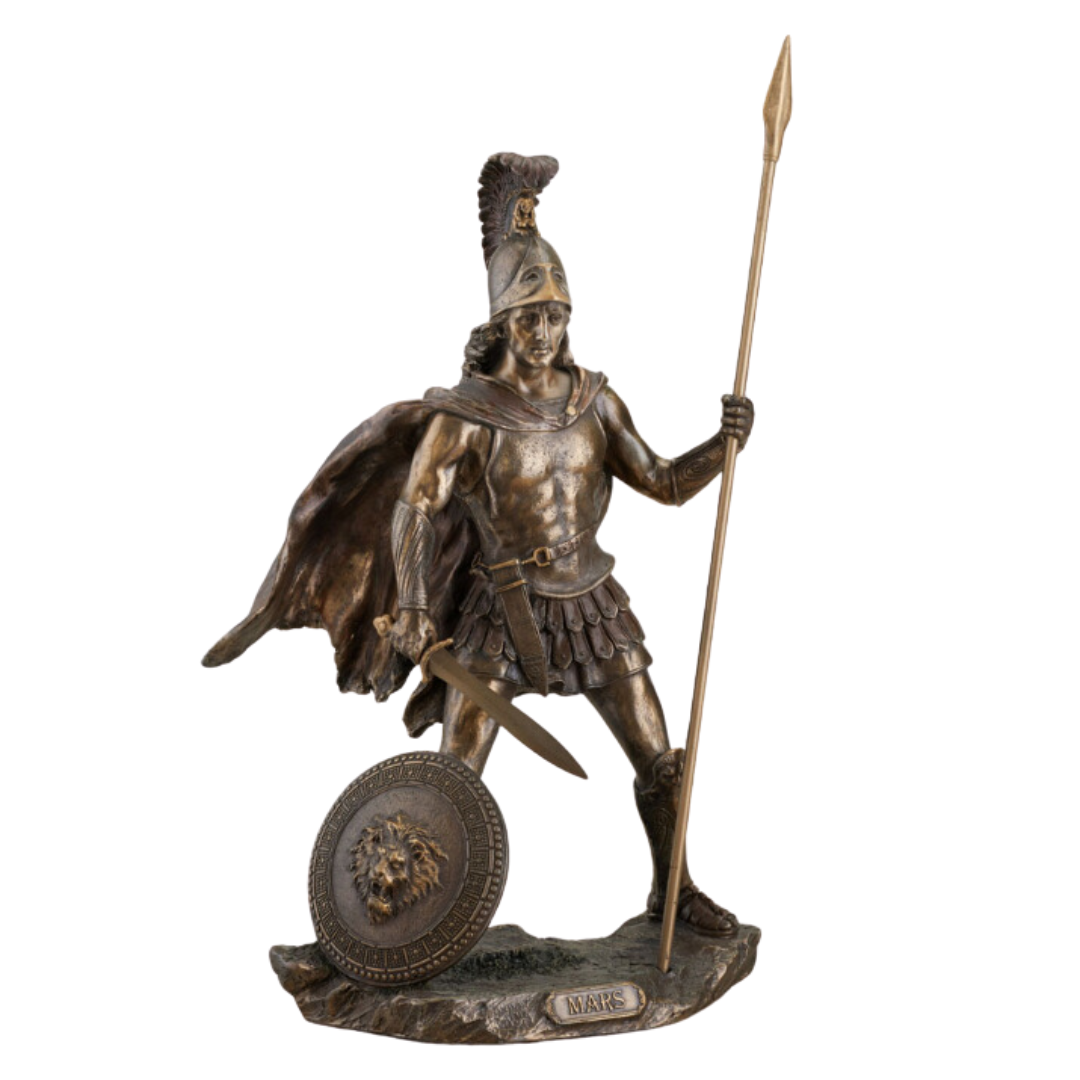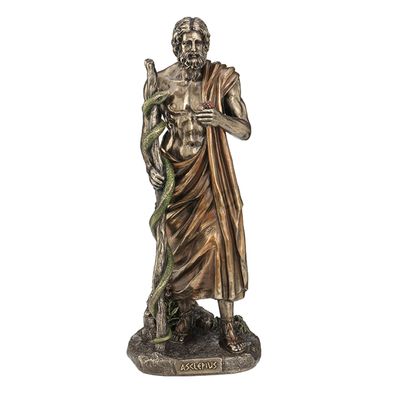Witchcraft supplies and wicca supplies online from one of the USA's BEST pagan stores! WINTER SALE NOW ON! USE COUPON CODE "DARKARTES" FOR 20% OFF SITEWIDE!!!
Mars Roman God of War
$72.99
Gorgeous pagan and witchcraft statue for your altar, or for use in ritual Magick or as an idol, or just because they make your room look great. These are by Veronese Designs! Hand painted cold cast resin pagan statues for witchcraft, paganism and wicca.
In stock: 1 available
Product Details
UPC: 6944197121671
Brand: Luna Ignis
Tags: Altar Statues,Conflict,Greek Gods,War,fire
Furious Mars was the Roman god of rage, passion, destruction, and war. As a foundational deity, Mars had a mythology that was intimately intertwined with the Roman city-state. Mars ruled early Rome as a part of the Archaic Triad, a masculine ruling triumvirate that also included Jupiter and Quirinus (the deified Romulus). The early Romans revered Mars as a great raging god, whose fury inspired the savagery of warfare and produced the stunning accomplishments of the Roman arms. As Rome transitioned from city-state to empire and overtly embraced Greek cultural values, Mars lost his preeminent position in the Roman pantheon to Minerva, the goddess of tactical and strategic warfare.
Mars’ importance to the Roman people was embedded in the mythic history of Rome and the origins of the Roman state. According to Roman mythology, Mars raped the innocent Rhea Silvia and sired Romulus and Remus, twins who would go on to establish the fabled city.
Mars was largely based on the Greek god Ares, the Greek god of war, and shared much of his mythology. The two deities differed in at least one respect, however—while Ares was a source of destructive conflicts that tore apart communities, Mars was a wellspring of productive conflicts that brought lasting peace.
Mars controlled war and the passions that fueled it. He was represented both as a fully mature male with a beard and curly hair, and as a youth with smooth cheeks. He was shown often in the nude, perhaps a sign of the raw, unadorned forces he was thought to inspire. When clothed, he wore a military cloak, plumed helm, and cuirass. This last item was often adorned with the gorgoneion, a medusa head that was thought to ward off evil. His weapon was the spear, which would be wrapped in a laurel to symbolize peace. This symbolism spoke to Mars’s status as the god who brought peace through war.
Save this product for later
Mars Roman God of War
You May Also Like

Hestia Greek Goddess of Hearth
Gorgeous pagan and witchcraft statue for your altar, or for use in ritual Magick or as an idol, or just because they make your room look great. These are by Veronese Designs! Hand painted cold cast resin pagan statues for witchcraft, paganism and wicca.
Hestia Greek Goddess of Hearth
$79.99

Wooden Baphomet Statue Hand Carved
HAND CARVED in Northern Europe by pagans from Alder!! Gorgeous unique pagan, heathen and witchcraft statues for your altar, or for use in ritual Magick or as an idol, or just because they make your room look great. Carved by pagans for pagans!
Wooden Baphomet Statue Hand Carved
$99.00

Wooden Thor Statue Hand Carved
HAND CARVED in Northern Europe by pagans from Alder!! Gorgeous unique pagan, heathen and witchcraft statues for your altar, or for use in ritual Magick or as an idol, or just because they make your room look great. Carved by pagans for pagans!
Wooden Thor Statue Hand Carved
$99.00
Powered by Lightspeed
Display prices in:USD


